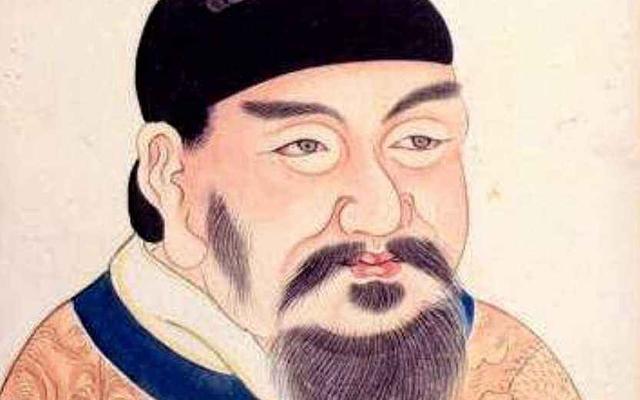After the emergence of the "two-child policy", "many people have great strength" has been re-remembered. In ancient times, this idea was one of the most accepted ones, and many dynasties were excited to increase their population.
The power of many people has been re-erected in the new era
For example, Tang Taizong said, "If officials below the thorn history and county order can marry in time, the number of widows and widows is small, and the number of quasi-household registrations is increased, so as to enter the examination." If the guide is obedient, the spouse is lost, and the quasi-household is reduced, and the temple is lost. ”

Emperor Gaozong of Tang
This means that if the grass-roots officials such as thorn history and county officials can promote marriage in time, reduce the widows and widows and lonely population, and increase the number of hukou, then they will be given assessment and promotion. If the opposite is true, then, if you want to be promoted to the temple, then don't think about it.
Emperor Gaozong was also excited by the increase in population from 3 million in the Taizong period to 3.8 million.
Not only in ancient China, but also in Western countries. The Queen Victorian period (1837-1901), the "Queen of Great Britain and Ireland and the Queen of India", also strove to expand fertility in Britain.
Don't think that this is something that ancient society did not respect human rights, saying that China is an "agrarian society" country and attaches importance to "inheritance". "Marriage" has never been a "personal" thing, but the overall situation of "marriage" is normal, and the state can ignore "personal affairs", but if the "threat" comes to the national interest, the "individual" will inevitably be suppressed.
The history of the "heroic mother" in the Soviet Union fully proves that the "positive encouragement" will greatly promote the development of the population and save the country from the destruction of foreign enemies. So, is it possible to "spur negatively"? In this regard, the history of our country can provide a wide range of references.
Heroic mother of the Soviet Union
How in ancient times punished those who "married late" and "did not marry"? Taxation, punishment of parents, no more coercion
Since we want to increase fertility, we must pay attention to those who "marry late" and "do not marry". To this end, emperor Hui of Han appeared in 189 BC with a "single tax", that is, to punish women who "did not marry" and "married late". The law says: "If a woman is over fifteen years old to thirty years old, she will not marry, and she will be counted as five."
The poll tax collection standard formulated by Liu Bang is that each person is counted once a year, one hundred and twenty yuan is counted as one, and five calculations are six hundred yuan. At that time, one stone was equal to 120 catties, and one stone of grain was about 100 yuan, so six hundred dollars was five stones and six hundred catties of grain. Six or seven hundred catties of grain is equivalent to the amount of food that we have now as a big and small man. In ancient times, grain production was not high, and now high-yield crops such as corn, wheat, and rice are not available.
These are still economic penalties earlier, and legal penalties are even earlier. During the Spring and Autumn Period, the Yue King Gou Jian ordered that women should not marry seventeen, men should not marry, and both parents were guilty. This policy continued until the Southern and Northern Dynasties, and the age requirement for marriage was even earlier, "a woman does not marry fifteen, and her family sits on it."
What if you don't listen to the economy and you don't listen to the law? Forced marriage!
In the Tang Taizong era, the "Decree on Persuading Shu people to marry and hire in a timely manner" required that those who were more than 20 men and 15 or more women who were not married were all responsible for marrying with courtesy by local officials of prefectures and counties. Because he was poor, the rich neighbors around him paid the bride price for him, and the "official media" of the country went to say yes!
It can be said that from the Spring and Autumn Period, because of the decline of the Zhou royal family, the rise of various princely states, and frequent wars, various countries began to advocate "early marriage" and "multiple children".
Thus began a history of three thousand years. The earliest was the marriage of the Han Zhao Emperor at the age of eight and the empress at the age of six. At the youngest, the eleven-year-old princess got married. In general, our country is male fifteen six, female thirteen four five.
Film and television image of Emperor Han Zhao
Modern Britain, South Korea, and Japan have plans to punish those who "marry late" and "don't marry."
In fact, the punishment of those who "marry late" and "not marry" is the same in the West, for example, in ancient Rome, men over 30 years old were forbidden to participate in elections, be elected, and vote. In modern times, because of the pressure of a shrinking population, some people have begun to prepare to punish "single" people.
In 2010, a British research institute proposed the benefits of a "single tax" on "single men and women". Later, the Italian city of Vasto Giraldi was prepared to impose a "singles tax".
In 2015, South Korea also discussed the "single tax", and then the US state of Missouri also proposed a "single tax".
In September 2017, Japan also proposed a "single tax", but later some people said it was a misunderstanding.
At the same time, some people in China have proposed to pay a "single tax", but at present these views are only directional thinking.